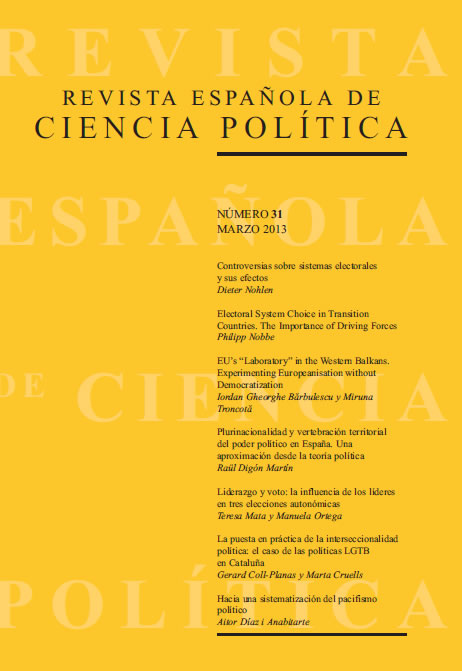Electoral System Choice in Transition Countries. The Importance of Driving Forces
Keywords:
electoral system choice, transition, third-wave democracies, electoral threshold, strategic behaviorAbstract
This research paper examines the relationship between the type of transition and electoral system choice.The analysis is based upon a country sample of 51 third-wave democracies. The theoretical argumentslead to the hypothesis that countries whose transitions to democracy are driven both by the ruling elitesand civic forces apply more permissive electoral systems afterwards. Whenever there is one dominantactor during the transition process, a less permissive electoral system becomes more likely. It is alsoassumed that countries that have a democratic past tend to rely on the institutional design of that period.The results of a multiple regression analysis confirm the hypotheses and point out that political actorsbehave strategically and according to their utility function, especially in transition processes, which arecharacterized by great uncertainty. Ideology does not matter and information from the past is used topredict future developments.Downloads
Download data is not yet available.
Downloads
How to Cite
Nobbe, P. (2013). Electoral System Choice in Transition Countries. The Importance of Driving Forces. Revista Española De Ciencia Política, (31), 41–62. Retrieved from https://recyt.fecyt.es/index.php/recp/article/view/37574
Issue
Section
Articles
License
Copyright (c) 2013 Philipp Nobbe

This work is licensed under a Creative Commons Attribution-NonCommercial-NoDerivatives 4.0 International License.






